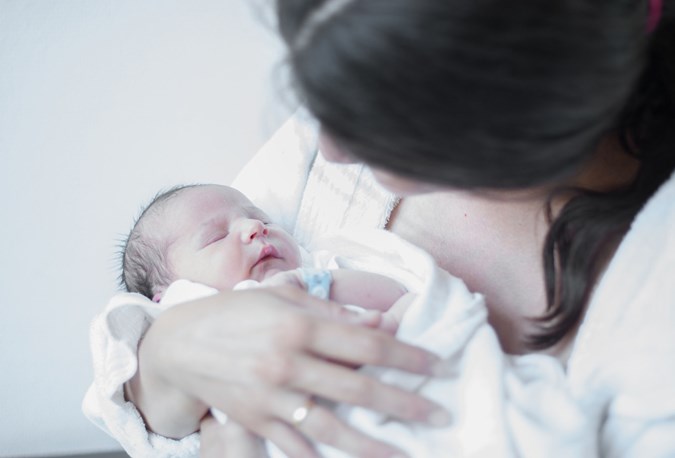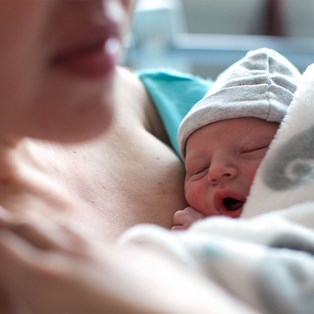"I worried that the calm I felt when my son finally drifted off to sleep was a sign that I wished he wasn’t there"

One mum shares her experience with post-natal anxiety
By Practical Parenting team
March 20 2019
In her new book Unlike the Heart, author, book editor and mum Nicola Redhouse shares a searingly honest account of new motherhood, and her quest to understand the debilitating panic she felt after the birth of her children. This is an extract from her book, about the early days at home with her new baby son, Reuben, after a painful and traumatic birth.
“In between my record-keeping of Reuben’s feeding and sleep, I tallied up my own sleep. It felt essential to my not succumbing to the panic that I get at least six hours in a 24-hour cycle.
I kept a ledger of these broken hours in the notebook. I got into bed the moment my husband Gideon came home from work, to rack up at least one hour.
I handed Reuben to him, climbed under the covers and finally felt my shoulders drop, the release of an hour or so in which I knew the baby was the safest he could be, lying on my husband’s chest, in the dark of the lounge listening to classical music. I had no idea if Gideon ate dinner; I had dropped all pretence of mutual care. This was survival.
Later, once we had bathed Reuben and I had fed him and wrapped him and laid him in his cot, I returned to bed, where I forced the dog into a kind of body-lock, and covered our heads with the doona to mute the world.
I could not read. Before I was a mother I had read countless manuscripts every day in my work and then returned home to read books for pleasure. But now I could not take in a single word on paper. Even on my phone, I could not follow long sentences. A curtain had dropped on my seeing.
Fiction, particularly, caused my faculties to shut down. Once I had written short stories but now I felt rage toward fiction writers for their gratuitous task. Life felt urgent; there was no time for art.

Getty images
Nor could I listen to the hundreds of messages friends had left on my phone. Like the presents piling up on the dining table, they were a reminder of all I was supposed to be feeling: celebratory, in communion.
Instead, I would close my eyes, recount the hours I had slept that day, and plunge wholly into a dark sanctuary. Often, just before I fell asleep I hallucinated that I could see into Reuben’s room, that he was able to sit up, that he was looking for me.
I was comforted by how in love I felt with Reuben – even with the inexplicable lurching dread that washed over me when I opened my eyes each morning, there was a glint of excitement to feel knowing that he was mine forever. But there was resentment too, for the unrelenting attendance I made to him; a worry that the calm I felt when he finally drifted off to sleep was a sign that I wished he wasn’t there.
I confessed this to my father over the phone one night. ‘His Majesty the Baby,’ he said, reminding me of the phrase Freud had used in talking about the necessary narcissism of babies, who depend upon their parents to attend to their needs in early life as a matter of survival.
I feared that Reuben wasn’t sleeping because of something that I was doing to him or not doing to him. And of course I was acutely aware, but in a distant, disbelieving way, that his sleep patterns might be in cahoots with my permanent state of panic. That perhaps encountering a mother who looms over your bassinet with fear in her eyes when you voice a mere burp is not conducive to drifting back off to sleep peacefully.
During the day, once the initial cold adrenalin of morning had passed, I felt close to happy holding Reuben in the new spring sunlight. He slept in the crook of my arm while I watched a TV show about a comically dreamy obstetrician. I found, though, even when I watched TV, my thoughts were moored to my predicament.
Did the actress playing the obstetrician have children? Did their cries cause her to break into a cold sweat? Was it true to life that the characters going home with their new babies were smiling and not crying?
The panic was much less pronounced when Reuben was with me; it was at night when he was separate from me that I felt it, when the prospect of the next day loomed like a tidal wave.
This is an edited extract from Unlike The Heart by Nicola Redhouse (UQP), available from all good bookshops and online at booktopia.com.au









